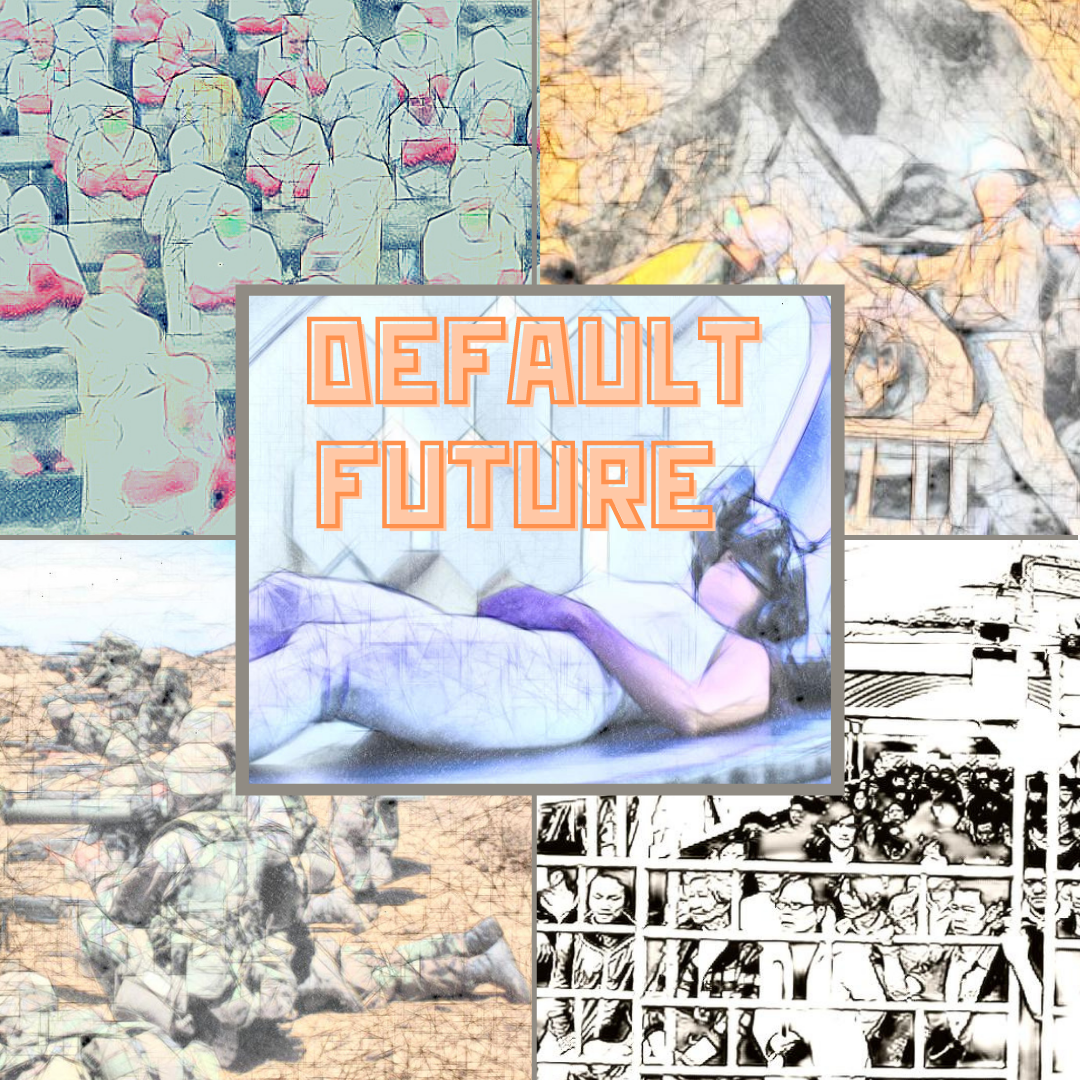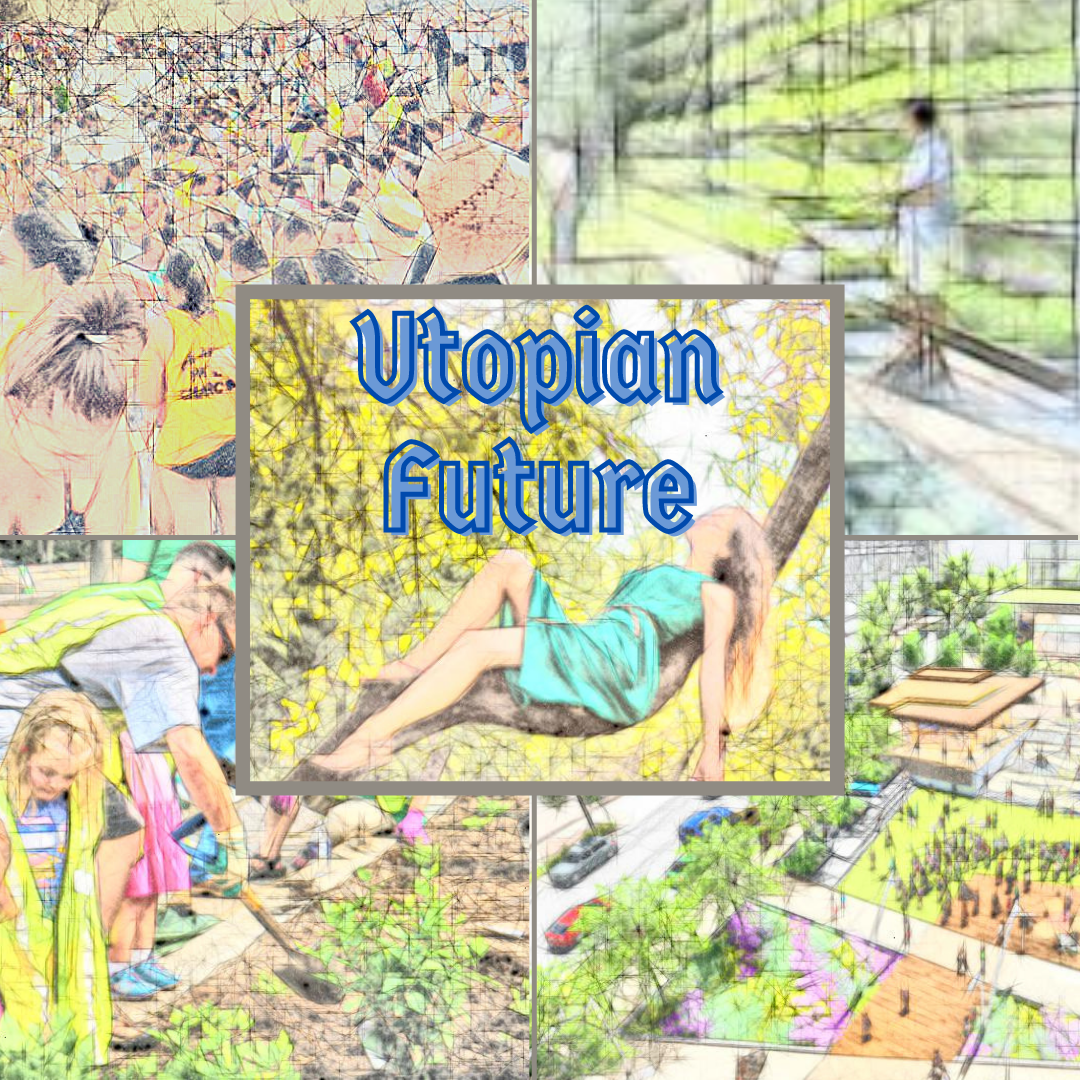Take a moment to think about all the possible futures you’ve ever seen presented in any of the various forms of science fiction media you’ve come across. Although many details may differ between the mutlitude of different worlds that artists and authors have depicted, when you boil them all down to their most fundamental core, there are only two possible future scenarios for humanity: a dystopian future or a utopian future.
But what is the fundamental feature that makes the difference between a dystopian and a utopian world.? You might think it’s an abundance of resources in a utopia, or something about the technological development of society, but our answer is actually much deeper, more subtle, and ultimately simpler1.
Default Scenario: The Dystopian Path

One future looks like the Malthusian fight for survival on a planet with dwindling resources. That’s the trajectory that we’re on using the default capitalist system that we live under now. If we fast forward 30 years, we basically know that the drive for greater and greater competition over resources is going to spread to more and more parts of the world. And this is certain to eventually exhaust the ability of our planet to support everyone on it. Even if we can figure out enough renewable-derived energy to satisfy all the energy needs of the world today, if we wanted everyone to live like Americans do today it’s estimated we’d need 5 planets worth of resources.
Just as a reminder, we only get 1.
So in the scenario where we compete until we’re past the point of ecological sustainability, there’s going to be famine and disaster that hurts a lot of people. And there are going to be others who take advantage, expand their empires, and start wars for resources. And the worst part is that the arms race to defend our scarce natural resources will end up consuming all of the good beautiful enjoyable parts of life that we have now. We’ll continue to concentrate power into fewer and fewer hands. There will be automation of the machines of war, which will take energy that could go to human life. And to secure this power a few people will have to build an iron tight grip on a state that even in the best scenarios will slip ever closer to totalitarianism.
Again, all of that follows logically from a survival of the fittest, competition-centric model of society. That’s what we have today, and that’s for the most part what a lot of our growth-oriented leaders seem to think is the best solution for our own survival.
Anyone who tells you that capitalism will solve all these future problems hasn’t thought it all the way through2. After all, even if you are one of the lucky few who do manage to survive the first 10 years. What happens when one half of the planet decides to go to war with the other half for the rest of the resources? Will you survive that? And so on? Would you want to live that way? Literally nothing but fighting over scraps until we’ve lost all our culture, our art, and any science that didn’t relate directly to war.
To my mind, there is no healthy and morally sane way to move forward as we approach the limits of the environmental capacity of the planet without a drastic change to our social structure and what it means to be successful in our society.
Scenario 2: The Utopian Option
But there is an alternative scenario for humanity’s future.

A utopian future would look very different. Everyone on the planet would be certain that their basic needs would be met, and that future generations of their children would have a similar safety and security. Technological advances would be distributed more equitably, allowing even more people to share in the abundance and contribute to society.
However, this alternative relies on humanity reaching a consensus on a truce—a global truce between every person not to overconsume their share. How do we define the rules of “a fair share?” Honestly that is probably the most difficult question of our time. It’s one that terrifies the powerful who in their hubris are convinced that they’ll maintain power forever. It’s one that confuses regular working people who have been so propagandized to this cult of individualism and competition that they literally can’t imagine anything better.
I can’t tell you how to answer the question of how we decide what is enough because I can’t possibly be the one to decide. Is it everyone getting the same? I doubt it. Is it a basic income and then crafts, art, games and sport deciding who gets a little extra? Probably not. I have my own ideas, which I’ll elaborate on in other writings, but my point here is you have to start thinking about it now. And you have to ask your friends. And you have to be prepared to answer that question in your life. And you have to start working towards the world where your answer comes to life as soon as you can.
If we can’t come to a consensus, and figure out some way to regulate ourselves and each other, the default is to spiral back into the overconsumption arms race.
I believe we’re better than that. In all this universe there’s no one I believe in more to solve this problem. We have thousands of years and hundreds of cultures who have practiced these ways of living within their means. That form of cooperation is literally imprinted in our blood. But we’ve been fooled by a few bad philosophers who cooked up a bullshit ideology to justify slavery and colonization. We can undo this. We just need to work on it. It needs to be an idea we study with more attention than anything else we’ve ever learned. But I believe every human being is capable of having this conversation.
And even though we’re talking about something that feels so distant it’s almost like science fiction, this conversation needs to happen now. The default path may be dystopia, but if we act, utopia is possible.
-
Simple, but almost certainly not easy. ↩
-
If someone out there thinks they have thought a captialist utopia through, and you believe there’s a reason a utopia based on fairness isn’t the best possibility, I challenge you to join our discord and debate the subject. Or if there’s any other points you’d like to make, please don’t hesitate to join the community and have a discussion. ↩
 will stedden
will stedden